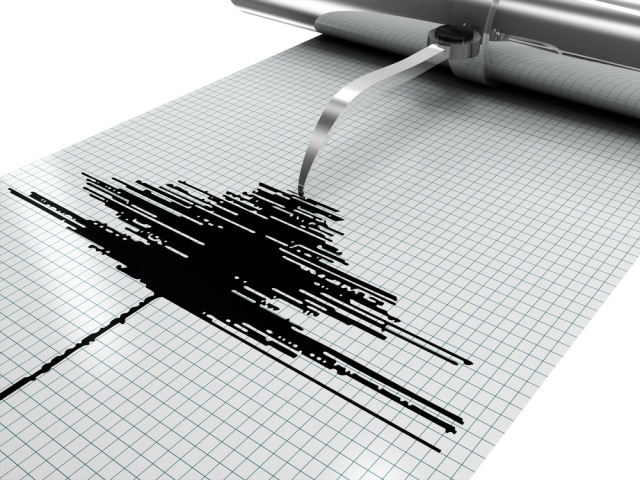Some of the most heavily fracked parts of the US have experienced an unprecedented wave of earthquakes in recent years even though they’ve long been considered geologically stable. But the oil and gas industry is quick to reject any suggestion that fracking is to blame.
The United States Geological Survey, for its part, has said in the past that the injection of fracking wastewater into deep geologic formations was a likely cause of the increased seismic activity in Oklahoma.
Now the agency has made it official.
“Deep injection of wastewater is the primary cause of the dramatic rise in detected earthquakes and the corresponding increase in seismic hazard in the central U.S.,” the USGS said in a press release.
Several scientists and seismologists with the USGS, the University of Colorado at Boulder, the Oklahoma Geological Survey, and the Lawrence Berkeley National Laboratory have published a paper in the journal Science that calls for greater transparency from the oil and gas industry, as well as collaboration between industry, government, and the public, in order to mitigate the impacts of these “human-induced earthquakes.”
There were more earthquakes of magnitude 3 or higher in Oklahoma last year than in California. Several were of a magnitude greater than 5 and caused considerable damage.
The problem has become so prevalent that Oklahomans have started seeking earthquake insurance, which insurers used to dismiss with a laugh. But even as seismic activity increased since the rise of fracking in 2008, the industry and Oklahoma regulators took no meaningful action to protect residents, which is no surprise given how integral the oil and gas industry is to Oklahoma’s economy.
The USGS is not the first to come to the conclusion that wastewater injection is causing the quakes—and not even the first to publish that conclusion in Science.
But until now there has been no comprehensive plan for managing underground injection programs in such a way that lessens the impacts of the induced seismicity on the state and its residents. That is, essentially, the void the USGS scientists and their co-authors were attempting to fill.
“In contrast to natural earthquake hazard, over which humans have no control, the hazard from induced seismicity can be reduced,” said the study’s lead author, USGS geophysicist Dr. Art McGarr. “Improved seismic networks and public access to fluid injection data will allow us to detect induced earthquake problems at an early stage, when seismic events are typically very small, so as to avoid larger and potentially more damaging earthquakes later on.”
Oklahoma is not the only state to have sustained increased seismic activity since the fracking boom began. Arkansas, Colorado, Ohio, and Texas have all been subject to fracking and had their share of earthquakes tied to wastewater injection. But Oklahoma is by far the most impacted.
From 1978 to 2008, the state experienced, on average, one to three earthquakes of magnitude 3 or greater every year. In 2014 it had 562, more than three times the 180 in California.
The authors of the paper note that although their focus was on the United States, Canada, China, and the UK have all experienced “similar problems associated with oil and gas production.”
Image Credit: hakandogu / Shutterstock.com
Subscribe to our newsletter
Stay up to date with DeSmog news and alerts






